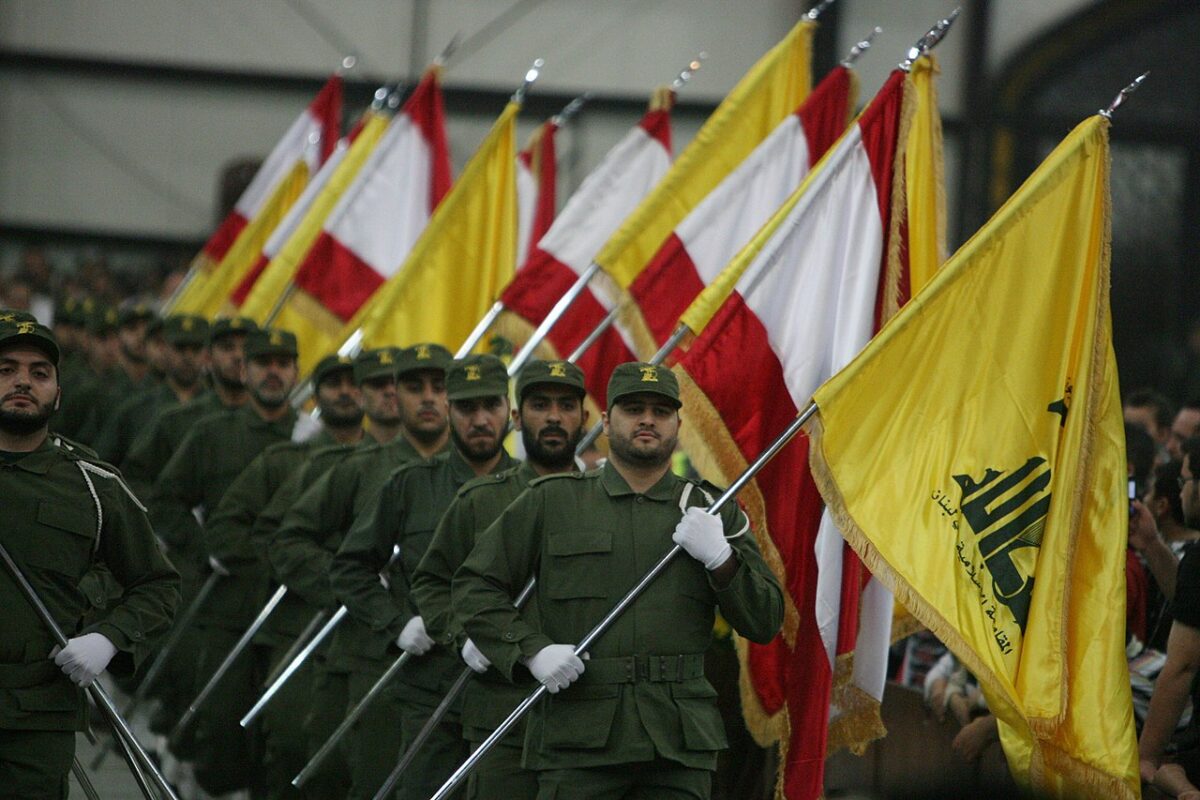Rudderless Lebanon Becomes Plaything of Regional Powers
Boom Times
Caught in a closing pincher between Israel and Hezbollah, the people of Lebanon lack agency – and a government. Their fate rests with the Party of God, a terrorist organisation and proxy of Iran’s ayatollahs that constitutes the de facto power in Lebanon. The country has been without a president for well over two years. Twelve successive votes in parliament failed to produce a head of state. Caretaker prime minister Najib Mikati, a liberal, is effectively powerless as the country sinks further into economic chaos and social despair whilst forces far beyond its control prepare for war.
A failed state in all but name, Lebanon depends on US shuttle diplomacy to ensure peace. White House envoy Amos Hochstein arrived Wednesday in Beirut for talks with parliament speaker Nabih Berri, a strong Hezbollah supporter, to detail the latest ceasefire plan for Gaza. Mr Hochstein also met with caretaker PM Mikati and foreign affairs minister Abdullah Bou Habib. The flurry of diplomatic activity coincided with an Israeli airstrike in the Tyre district.
The US envoy emphasised that the framework for a ceasefire in Gaza currently under consideration would also help maintain peace along Lebanon’s unstable southern border, an area controlled by Hezbollah. Mr Hochstein’s trump card – no pun here – is the fact that no-one wants a full-scale war with the possible exception of faraway Iran.
The fear is that a new war would be much more destructive than the last one, fought in 2006 between Israel and Hezbollah. That confrontation lasted six weeks and left over one thousand Lebanese civilians dead along with about two-hundred Hezbollah fighters. With a crippled economy and without a government, Lebanon can ill afford being pushed into war by belligerent Islamists.
Unsettling Sonic Booms
Over Beirut, the capital, Israeli fighter jets roam freely reminding inhabitants with sonic booms of the looming danger. Many are scrambling to leave the country with the few remaining flights fully booked. Western governments have issued stern travel warnings and advised their citizens to leave Lebanon immediately for any outside destination. The country has only a single airport which was rendered inoperable during the 2006 war after Israeli airstrikes knocked out its three runways.
At the time, the Israel Air Force justified the strikes arguing that the airport was use by Hezbollah to receive arms shipments from abroad. The terminal is owned an operated by the Directorate General of Civil Aviation, part of the Hezbollah-controlled Ministry of Public Works and Transport.
Wrestling a ceasefire from the ruins of Gaza is seen as an improbable but necessary exercise in diplomatic brinkmanship. Senior American officials argue that Israel has reached “the end of the line” in Gaza with continued major operations unlikely to yield meaningful results. Whilst Hamas has been severely damaged and its offensive capabilities curtailed, the complete elimination of the terrorist organisation seems an objective impossible to attain.
Whac-a-Mole
However, Israel’s military operations have achieved more than Washington expected. Israeli forces can move freely throughout the strip with surviving Hamas fighters now cowering underground or in civilian areas, using human shields as their primary means of defence. Recent Israeli operations in Gaza have been likened to a Whac-a-Mole game whereby small pockets of Hamas fighters are ruthlessly dealt with, only for others to pop up elsewhere in Gaza.
Quoted in the New York Times, retired major general Yaakov Amidror, a former security advisor to Prime Minister Benjamin Netanyahu, disagrees and says another few months of offensive operations is called for, followed by a year of mopping up and flushing out any remaining terrorists.
Mr Amidror considers the full elimination of Hamas an attainable objective if the flow of arms to the organisation can be interrupted by destroying the tunnels that cross into Egypt and by sealing off the 8-mile-long border with that country.
Hamas negotiators seem to acknowledge their organisation’s weakness and have indicated that they may be willing to forego a role in any post-war civilian administration. Even so, Hamas is not sending any representatives to the talks on a ceasefire and hostage deal scheduled to resume today in Doha. The negotiations were suspended after last month’s assassination of Hamas political leader and chief negotiator Ismail Haniyeh in Tehran.
However, the sudden demise of Mr Haniyeh is not the only stumbling block. The Israeli government is unwilling to give up control of the Philadelphi Corridor along the Gaza-Egypt border. The Netanyahu government also feels uncomfortable entering into indirect negotiations with Mr Haniyeh’s successor Yahya Sinwar, the mastermind behind the 7 October terrorist attack that sparked the Gaza War.
All Eyes on Iran
Lebanon and the rest of the Middle East is holding its collective breath and looking to Iran which has promised massive retaliatory rocket attacks to wipe Israel off the map. Although the last time Iran launched a missile barrage, the damage inflicted was minimal, the country’s leaders have vowed to unleash the full might of their forces. However, so far Tehran has uttered a great many threats but launched no rockets, proclaiming that revenge is a dish best served cold.
Meanwhile, Israel repeatedly cautioned Hezbollah to refrain from escalating the current low-intensity conflict lest it wishes to be dislodged from southern Lebanon. A full invasion remains a distinct possibility to push the Party of God thirty or more kilometres inland, to an area north of the Litani river where the organisation was supposed to retreat to under the terms of UN Security Council Resolution 1701 which ended the war of 2006.
However, Mr Hochstein, the US special envoy, was told in Lebanon that is would probably be easier to move the Litani south than to push Hezbollah north.
Cover photo: Cannon fodder on the march, Hezbollah martyrs-to-be show the flag.
© 2018 Photo by Ali Khameini


